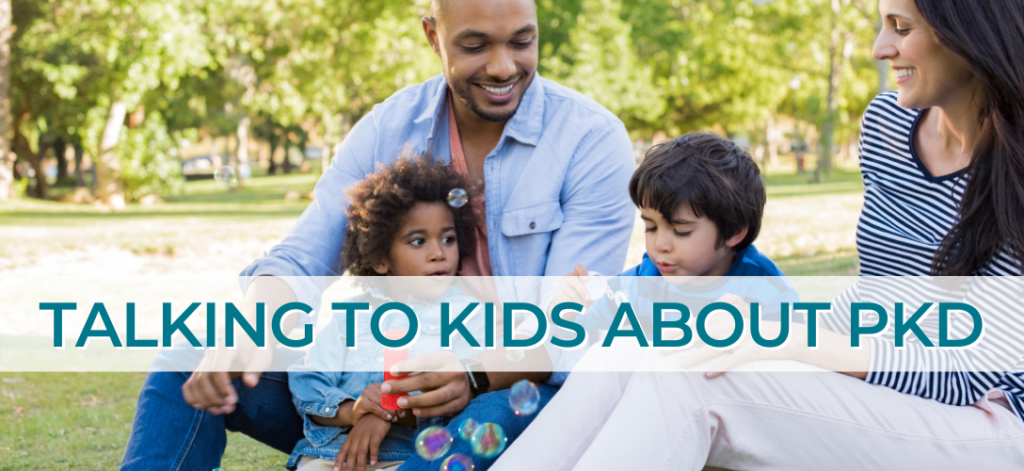
Published on March 2, 2021 | As a parent, you may struggle with how and when to talk about PKD in your family. While every child and family is different, Gillian Mayersohn, Psy.D., a pediatric psychologist at St. Louis Children’s Hospital, says in general, talking to kids about PKD is a good idea.
“Sharing information with your kids helps build trust,” Dr. Mayersohn says. “Plus, kids are very intuitive. When you avoid a subject, whether it’s your illness or your child’s diagnosis, sometimes kids incorrectly assume that whatever is going on is too terrible to talk about.”
For Anne Bartels, of Lenexa, Kansas, honesty about PKD has been essential. Growing up, PKD was a common topic in her family, so as soon as she had kids of her own, it felt natural to tell her two sons about her condition and their potential to inherit it.
“If I tried to hide it from my kids and then they found out something, I think they’d be even more afraid,” Bartels says.
Dr. Mayersohn recommends that parents practice the conversation first. Additionally, role-playing with kids can help them prepare for discussions with their peers and increase their feeling of control over the situation.
Kids with a new PKD diagnosis may need time to adjust before they’re ready to talk about it. Once they’re ready, be sure to name the disease, describe treatments, and explain the ways PKD will—and won’t—affect their lives.
In all these conversations, it’s OK to show emotions and to admit when you don’t know the answer. However, try avoiding using lots of medical jargon. “Those terms can be overwhelming, even for us as adults,” Dr. Mayersohn says.
The HOPE Line Can Help You Talk About PKD
Finally, keep in mind that support is available. If you need help, don’t hesitate to talk to your or your child’s medical team. A psychologist or counselor can also offer extra support for you and your family as you navigate living with, and talking about, PKD. The PKD Foundation HOPE Line is another great resource; trained staff are available by phone or email to offer support and connect you to resources or people who have been through something similar.
Talking to Kids About PKD at Different Ages
You know your children best, and you can judge their readiness to learn about PKD. But pediatric psychologist Gillian Mayersohn offers these age-specific tips for talking to kids about PKD.
Under Age 8
Use simple words, pictures, or books to help explain PKD. (Anne Bartels described cysts to her sons as “water bubbles on your kidneys.”) Reassure kids that the disease wasn’t caused by anything a person did or did not do.
Ages 8-13
Give information using straightforward language. Encourage questions, but don’t force them to talk.
Ages 14-18
Explain the basics of diagnosis and treatment. Be ready to answer “what if” questions, help teens prepare to talk to friends about their disease, and offer additional resources if they want to learn more.
Want to see more articles like this? Read the full issue of our magazine, PKD Life, and subscribe to future issues here.









0 Comments